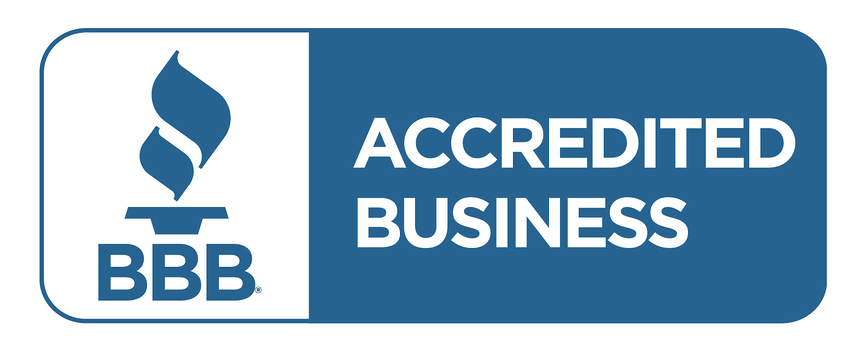Reverse Mortgage Myths - Common Misconceptions

Over the years, there have been many misconceptions and an overall lack of understanding about what reverse mortgages are, and how you can use them.
At Executive Lening, we’re committed to educating consumers about the many uses of this powerful financial tool. So we created this helpful Mythbusters section to help you separate fact from fiction.
Someone told me that with a reverse mortgage, the bank takes your home.
Is that true?
That’s a MYTH:
You own your home. Not the bank or lender.
Lenders are not in the business of owning homes — they wish to make loans and earn interest. The homeowner keeps the title to the home in their name. What the lender does is add a lien onto the title so that the lender can guarantee that it will eventually get paid back the money it lends when the loan is paid off or when the last borrower dies or vacates the home.
Will you be able to pass on the home to your kids?
That’s TRUE:
Your heirs can inherit the home.
Your heirs inherit the house, just as they would with any other mortgage. When the loan comes due, they can decide what to do to repay the loan balance. They can:
- Arrange their own financing, pay off the loan, and keep the house for themselves
- Sell the house and pay off the balance, keeping any extra funds
- Or they can do nothing with the house and deed it to the lender
Can you be forced out of your home for not paying a reverse mortgage?
That’s a MYTH:
It was designed to help people stay in their homes.
Reverse mortgages were created specifically to allow seniors to live in their home for the rest of their lives. Because the homeowner typically receives payments from a reverse mortgage— instead of making payments to a lender—the homeowner can never be evicted or foreclosed upon for non-payment. However, it is the homeowner’s responsibility to maintain the home in good condition, keep property insurance current, and pay property taxes.
I heard you shouldn’t get a reverse mortgage unless you’re desperate.
That’s a MYTH:
A reverse mortgage is a powerful tool—not a last resort.
A reverse mortgage is a powerful financial tool that can be an important part of your overall financial plan. From paying off an existing mortgage to delaying social security, or even creating an emergency line of credit, it’s a flexible product that gives you options. In fact, with recent changes and the security of the U.S. Department of Housing and Urban Development’s FHA insurance, many financial planners have begun to discuss reverse mortgages with clients who need additional sources of retirement income.
Will you still be able to get your Social Security and Medicare?
That’s TRUE:
Those benefits are generally unaffected by a reverse mortgage.
Government entitlement programs such as Social Security and Medicare are not affected by a reverse mortgage—however, need-based programs such as Medicaid may be. To stay eligible for Medicaid, you’d need to manage how much you take from the reverse mortgage per month to ensure you don’t exceed Medicaid limits. Consult a qualified financial advisor to learn how a reverse mortgage may impact your eligibility for some government benefits.
Are there a lot of upfront costs associated with a reverse mortgage?
That’s a MYTH: they don’t require large out-of-pocket expenses.
Mortgage loan origination costs and interest rates are comparable to those of traditional mortgages. There are FHA insurance costs that some traditional mortgages don’t require, but the insurance benefits are well worth the relatively small cost. Typically, lender closing costs and fees can be financed into the loan, so there’s little required out of pocket.
Will I have to pay taxes on the reverse mortgage?
The money from a reverse mortgage comes from your home’s equity, which already belongs to you, so it’s not considered income. Plus, the interest on a reverse mortgage can be tax-deductible when it’s repaid. Consult your tax advisor for more information.
More Reverse Mortgage Myths
MYTH #1: Getting a mortgage means that I’ll have to make monthly payments.
FACT: With a reverse mortgage, there are never any monthly payments. As the borrower, you’re only responsible for paying property taxes, insurance, and applicable HOA dues, and keeping the home in good repair according to HUD guidelines.
MYTH #2: My children will be responsible for repaying the loan.
FACT: A reverse mortgage is a “non-recourse” loan—which means the lender can only be repaid with proceeds from of the sale of the property. Even if the home value goes down, you or your estate can never owe more than the home is worth. And while your heirs won’t be responsible for repaying the loan, they do have the option to do so if they want to buy it for themselves.
MYTH #3: I can’t get a reverse mortgage, because my current mortgage isn’t paid off.
FACT: As long as you have enough equity in the home, you can have a mortgage or other debt on your home’s title and still qualify. In that case, the proceeds from the reverse mortgage must first be used to pay off the existing mortgage or debt. In fact, many clients get a reverse mortgage specifically for this reason—to get rid of monthly mortgage payments.
MYTH #4: Reverse mortgage lenders really just want to sell your house.
FACT: You can stay in your home for as long as you want, as long as you meet the terms of the loan. If you decide to sell the home or move out, then the loan would then become due.
MYTH #5: If I get a reverse mortgage, I’ll have nothing to leave my kids.
FACT: It’s possible that the value of your property may grow over your lifetime. At the same time, interest will accrue on the outstanding loan amount and be added to the balance. If there’s equity left over after the loan is repaid (usually from the sale of the home), it may be available for you to leave to your kids*.
MYTH #6: If I get a reverse mortgage, I can’t sell my home.
FACT: A reverse mortgage is like any other loan; if you sell your home, that reverse mortgage will be paid off at closing. There are no penalties for paying off the loan or selling the home in advance.
MYTH #7: If my lender or servicer changes, my loan terms can change.
FACT: The terms of the loan are defined at closing and by law cannot be changed, as long as the deeds remain in force.

